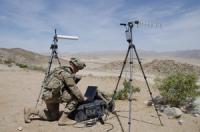-
Corporate Defenses Against Information Warfare
When asked about Russian election interference during his congressional testimony last month, Robert Mueller said: “They’re doing it as we sit here.” To defend the nation against information warfare, the U.S. government has adopted a policy—by default, not by design—of relying on the private sector to police itself, with limited behind-the-scenes government assistance. Facebook’s website says: “Our detection technology helps us block millions of attempts to create fake accounts every day and detect millions more often within minutes after creation.” These numbers sound impressive, but they do not tell the whole story. To assess the effectiveness of company defenses, we must distinguish among three types of fake accounts: bots, fictitious user accounts, and impostor accounts. Russian agents have created and operated all three types of accounts.
-
-
Sounding the Alarm about Another Kind of 9/11
Richard Clarke knows some things about clear and present dangers. As the first U.S. counterterrorism czar, he tried to alert important White House decision-makers before September 11 about the threat of a terrorist attack on U.S. soil, but those warnings were largely ignored; afterwards, he famously apologized publicly for the government’s failures. These days, Clarke is trying to get people to think hard about the next big attack—the cyber version—and all the ones that have already happened.
-
-
How Cyber Weapons Are Changing the Landscape of Modern Warfare
In the weeks before two Japanese and Norwegian oil tankers were attacked, on 13 June, in the Gulf of Oman—acts which the United States attributes to Iran—American military strategists were planning a cyberattack on critical parts of that country’s digital infrastructure. On 20 June, the United States launched a cyberattack aimed at disabling Iran’s maritime operations. Then, in a notable departure from previous Administrations’ policies, U.S. government officials, through leaks that appear to have been strategic, alerted the world, in broad terms, to what the Americans had done.
-
-
U.S. Offensive Cyber Operations against Economic Cyber Intrusions: An International Law Analysis
The United States is likely to struggle to make a convincing argument that economic cyber intrusions carried out against it breach international law. Consequently, in most cases the United States would not be able to resort to countermeasures in response. It must therefore show that its offensive cyber operations do not themselves breach international law.
-
-
Trump Is Rattling Sabers in Cyberspace — but Is the U.S. Ready?
While U.S. cyber defenses are improving, some experts worry about how the nation would recover from an even larger strike — such as one on the scale of the suspected Russian cyber-assault that blacked out power to more than 200,000 Ukrainians in 2015. The worst-case scenario, say experts, is that the U.S. gets into an escalating round of hacking attacks with some hostile power that spins out of control — with no plan for what to do next.
-
-
Cyberattack Attribution and the Virtues of Decentralization
In the midst of rising tensions between the United States and Iran over tanker attacks and Iran’s downing of a U.S. drone, reports emerged that U.S. Cyber Command had launched a responsive cyber operation against a group linked to the Iranian Revolutionary Guard Corps. As cyber operations by both states heat up, non-governmental actors may play pivotal roles, not just as potential victims and collateral damage from states’ actions, but also as accusers of states.
-
-
What a U.S. operation in Russia shows about the limits of coercion in cyber space

The New York Times recently reported that the United States planted computer code in the Russian energy grid last year. The operation was part of a broader campaign to signal to Moscow the risks of interfering in the 2018 midterm elections as it did in 2016. According to unnamed officials, the effort to hold Russian power plants at risk accompanied disruption operations targeting the Internet Research Agency, the “troll farm” behind some of the 2016 election disinformation efforts. The operations made use of new authorities U.S. Cyber Command received to support its persistent engagement strategy, a concept for using preemptive actions to compel adversaries and, over time, establish new norms in cyberspace. Benjamin Jensen writes in War on the Rocks that the character of cyber competition appears to be shifting from political warfare waged in the shadows to active military disruption campaigns. Yet, the recently disclosed Russia case raises question about the logic of cyber strategy. Will escalatory actions such as targeting adversaries’ critical infrastructure actually achieve the desired strategic effect?
-
-
U.S. Cyber Command, Russia and critical infrastructure: What norms and laws apply?
According to the New York Times, the United States is “stepping up digital incursions into Russia’s electric power grid.” The operations involve the “deployment of American computer code inside Russia’s grid and other targets,” supposedly to warn Russia against conducting further hostile cyber operations against U.S. critical infrastructure, and to build the capability to mount its own robust cyber operations against Russia in the event of a conflict.Michael Schmitt writes in Just Security that damaging critical infrastructure is clearly be out of bounds as responsible peacetime state behavior and would likely violate international law. But do these types of intrusions – seemingly intended to prepare for future operations or deter them, or both, without causing any actual harm – also run counter to applicable non-binding norms or violate international law during peacetime?
-
-
How not to prevent a cyberwar with Russia
In the short span of years that the threat of cyberwar has loomed, no one has quite figured out how to prevent one. As state-sponsored hackers find new ways to inflict disruption and paralysis on one another, that arms race has proven far easier to accelerate than to slow down. But security wonks tend to agree, at least, that there’s one way not to prevent a cyberwar: launching a pre-emptive or disproportionate cyberattack on an opponent’s civilian infrastructure. Andy Greenberg writes in Wired that as the Trump administration increasingly beats its cyberwar drum, some former national security officials and analysts warn that even threatening that sort of attack could do far more to escalate a coming cyberwar than to deter it.
-
-
Entering the third decade of cyber threats: Toward greater clarity in cyberspace
Over the course of just a few decades, the world has entered into a digital age in which powerful evolving cyber capabilities provide access to everyone connected online from any place on the planet. Those capabilities could be harnessed for the benefit of humanity; they might also be abused, leading to enormous harms and posing serious risks to the safety and stability of the entire world. Dan Efrony writes in Lawfare that a strategy of international cooperation is crucial to mitigate the threats of abuse of cyberspace, primarily by clarifying the “red lines” in the field of cybersecurity and determining how to verify and enforce states’ compliance with their legal obligations in the field.
-
-
When to use the “nuclear option”? Why knocking Russia offline is a bad idea
On Nov. 6, 2018, the notorious Russian troll farm—the Internet Research Agency or IRA—was silent. In an effort to “prevent the Russians from mounting a disinformation campaign” that would “cast doubt on the results” of the 2018 U.S. midterm elections, U.S. Cyber Command conducted a mysterious cyber operation to knock the organization offline. The news about the Cyber Command operation prompted suggestions that America should respond to cyberattacks with more drastic measures. Robert Morgus and Justin Sherman write in Just Security that even putting the important issues associated with offensive cyber operations, “we write to address a fundamental policy question about this type of cyber operation. Would it even serve the deterrent effect some claim it would?”
-
-
Cyberattacks are rewriting the "rules" of modern warfare – and we aren’t prepared for the consequences
Governments are becoming ever more reliant on digital technology, making them more vulnerable to cyber attacks. Politically-motivated cyber attacks are becoming increasingly commonplace but unlike traditional warfare between two or more states, cyberwarfare can be launched by groups of individuals. On occasion, the state is actually caught in the crosshairs of competing hacking groups. Vasileios Karagiannopoulos and Mark Leiser write in the Conversation that this doesn’t mean that states don’t actively prepare for such attacks. In most cases, cyberwarfare operations have been conducted in the background, designed as scare tactics or displays of power. But the blending of traditional warfare and cyberwarfare seems inevitable and a recent incident added a new dimension.
-
-
Crossing a cyber Rubicon?
Amid a massive exchange of rocket fire and airstrikes between Israel and both Hamas and Islamic Jihad this weekend, Hamas attempted a cyber operation against an unspecified civilian target in Israel. The operation failed, and in its aftermath the Israel Defense Forces carried out an airstrike that destroyed the building housing Hamas’s cyber capability. Some observers are citing the incident as an important—and perhaps dangerous—precedent. Others are questioning the legality of the strike itself. Robert Chesney writes in Lawfare that both these views are misplaced.
-
-
U.S. military steps up cyberwarfare effort

The U.S. military has the capability, the willingness and, perhaps for the first time, the official permission to preemptively engage in active cyberwarfare against foreign targets. The first known action happened as the 2018 midterm elections approached: U.S. Cyber Command, the part of the military that oversees cyber operations, waged a covert campaign to deter Russian interference in the democratic process.
-
-
U.S. Cyber Command cut Russian troll factory’s access to the internet

The U.S. Cyber Command blocked the internet access of the St. Petersburg’s-based Internet Research Agency (IRA), a Russian disinformation and propaganda outfit which was contracted by the Kremlin to orchestrate the social media disinformation campaign to help Donald Trump win the 2016 presidential election. The IRA’s access to the internet was blocked on midterms Election Day, and for a few days following the election.
-
- All
- Regional
- Water
- Biometrics
- Borders/Immig
- Business
- Cybersecurity
- Detection
- Disasters
- Government
- Infrastructure
- International
- Public health
- Public Safety
- Communication interoperabillity
- Emergency services
- Emergency medical services
- Fire
- First response
- IEDs
- Law Enforcement
- Law Enforcement Technology
- Military technology
- Nonlethal weapons
- Nuclear weapons
- Personal protection equipment
- Police
- Notification /alert systems
- Situational awareness
- Weapons systems
- Sci-Tech
- Sector Reports
- Surveillance
- Transportation
Advertising & Marketing: advertise@newswirepubs.com
Editorial: editor@newswirepubs.com
General: info@newswirepubs.com
2010-2011 © News Wire Publications, LLC News Wire Publications, LLC
220 Old Country Road | Suite 200 | Mineola | New York | 11501
Permissions and Policies
Editorial: editor@newswirepubs.com
General: info@newswirepubs.com
2010-2011 © News Wire Publications, LLC News Wire Publications, LLC
220 Old Country Road | Suite 200 | Mineola | New York | 11501
Permissions and Policies
